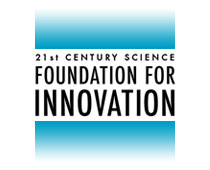Washington University in St. Louis will host a symposium May 30-31 to bring together people interested in developing new enterprises in Missouri based on research discoveries.

The conference, “21st Century Science: Foundation for Innovation,” begins May 30 at 3 p.m. with a presentation by Barry J. Marshall, M.B., B.S., recipient of the 2005 Nobel Prize in physiology or medicine, followed by a panel discussion on translating discoveries into business, moderated by Greg Steinhoff, director of the Missouri Department of Economic Development. Other panelists are Nick Akers, president of Akermin Inc.; James McCarter, M.D., Ph.D., founder, president and chief scientific officer of Divergence Inc.; and Patricia Gelnar, M.D., Ph.D., president of Graphic Surgery LLC.
Marshall will speak both about his groundbreaking research on mechanisms that cause ulcers and his experiences as an entrepreneur trying to reinvest intellectual property into budding biotechnology businesses.
Missouri Gov. Matt Blunt will begin the May 31 session with an address at 8:30 a.m., followed by sessions on scientific entrepreneurship, technology transfer and venture capital led by St. Louis business and academic leaders. Symposium attendees may also tour the School of Medicine campus, the Genome Sequencing Center, the Center of Research, Technology & Entrepreneurial Exchange (CORTEX) and the Center for Emerging Technologies.
All sessions will take place at the Eric P. Newman Education Center at Washington University School of Medicine.
This special symposium stems from work done about a year ago with the Council on Competitiveness to assess and encourage innovation in the St. Louis region. Mark S. Wrighton, chancellor of Washington University, and David W. Kemper, chairman, chief executive officer and president of Commerce Bancshares, co-chaired the work done collaboratively with the Council on Competitiveness. One impetus recommended was to take steps to encourage a culture of entrepreneurship.
“We want to bring together a diverse group of people to discuss the continuum from an innovative idea in a lab to the development of start-up companies,” Wrighton said.
Marshall and his colleague, J. Robin Warren, M.B., B.S., jointly received the Nobel Prize for discovering that stomach ulcers are caused by bacteria, not stress or lifestyle, as long thought. He oversees Australia’s National Health and Medical Research Council Helicobacter pylori research laboratory in western Australia and is chief executive and chief scientist of Ondek Biologic Delivery Systems.
When Marshall first presented his theory, he was ridiculed by the medical establishment and resented by the pharmaceutical industry. When animal testing of his theory proved inconclusive, he infected himself with Helicobacter pylori to prove it was the cause of ulcers and gastritis. As a result of his work, Helicobacter pylori is now recognized as a major factor in the development of stomach cancer.
On Wednesday, William H. Danforth, M.D., chancellor emeritus of Washington University, will moderate a session on research institutes, which will feature panelists William B. Neaves, Ph.D., president and chief executive officer of the Stowers Institute for Medical Research, and Roger N. Beachy, Ph.D., president and director of the Donald Danforth Plant Science Center.
Dan Getman, Ph.D., vice president, global pharmaceutical research and development for Pfizer Inc., will moderate a session on business-academic alliances. Panelists will be Lesa Mitchell, vice president for advancing innovation at the Ewing Marion Kauffman Foundation, and B.J. Bormann, Ph.D., vice president, strategic alliances at Pfizer. Samuel A. Wickline, M.D., professor of medicine at Washington University and co-founder of Kereos Inc., will be the lunchtime speaker.
After lunch, John McDonnell, vice chairman of the University Board of Trustees, will moderate a response panel from area academic research officers, including Nasser Arshadi, Ph.D., vice chancellor for research and professor of finance at the University of Missouri-St. Louis; Donald G. Brennan, Ph.D., dean of the Saint Louis University Graduate School, associate provost for research and professor of communication sciences and disorders; Theodore J. Cicero, Ph.D., vice chancellor for research and professor of psychiatry and of anatomy and neurobiology at Washington University; and James S. Coleman, Ph.D., vice provost for research and professor of biological sciences, University of Missouri-Columbia.
J.J. Stupp, co-founder and chief financial officer of Exegy, will moderate the final session on venture capital. Panelists include Thomas C. Melzer, co-founder and managing director of RiverVest; Brian L. Clevinger, Ph.D., co-founder and managing director of Prolog; and Raul E. Perez, M.D., president of Oakwood Medical Investors.
The event is free and open to the public, although reservations are required. For more information or to register, call (314) 286-0039 or go online to http://innovation.wustl.edu/.
Washington University School of Medicine’s full-time and volunteer faculty physicians also are the medical staff of Barnes-Jewish and St. Louis Children’s hospitals. The School of Medicine is one of the leading medical research, teaching and patient care institutions in the nation, currently ranked fourth in the nation by U.S. News & World Report. Through its affiliations with Barnes-Jewish and St. Louis Children’s hospitals, the School of Medicine is linked to BJC HealthCare.